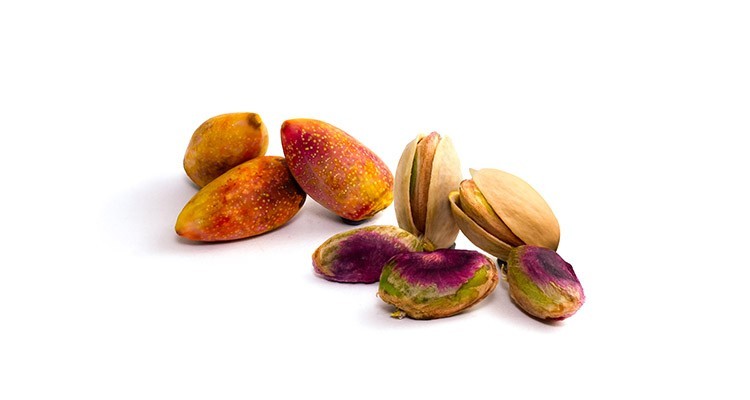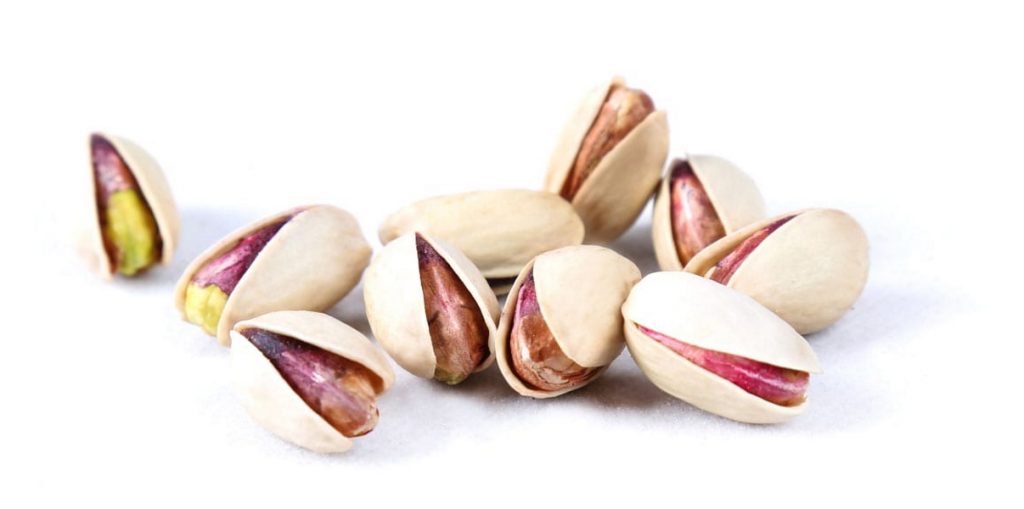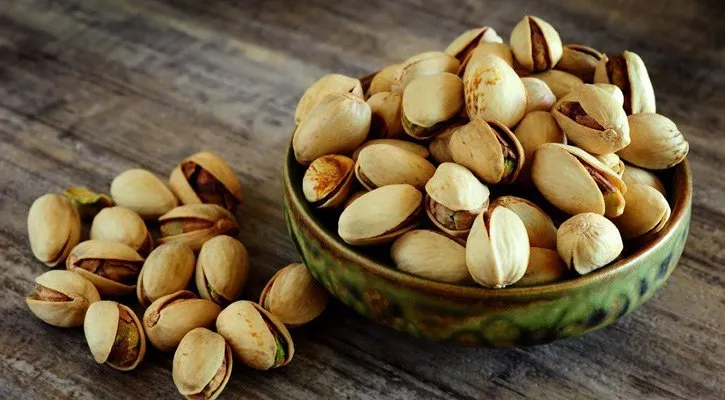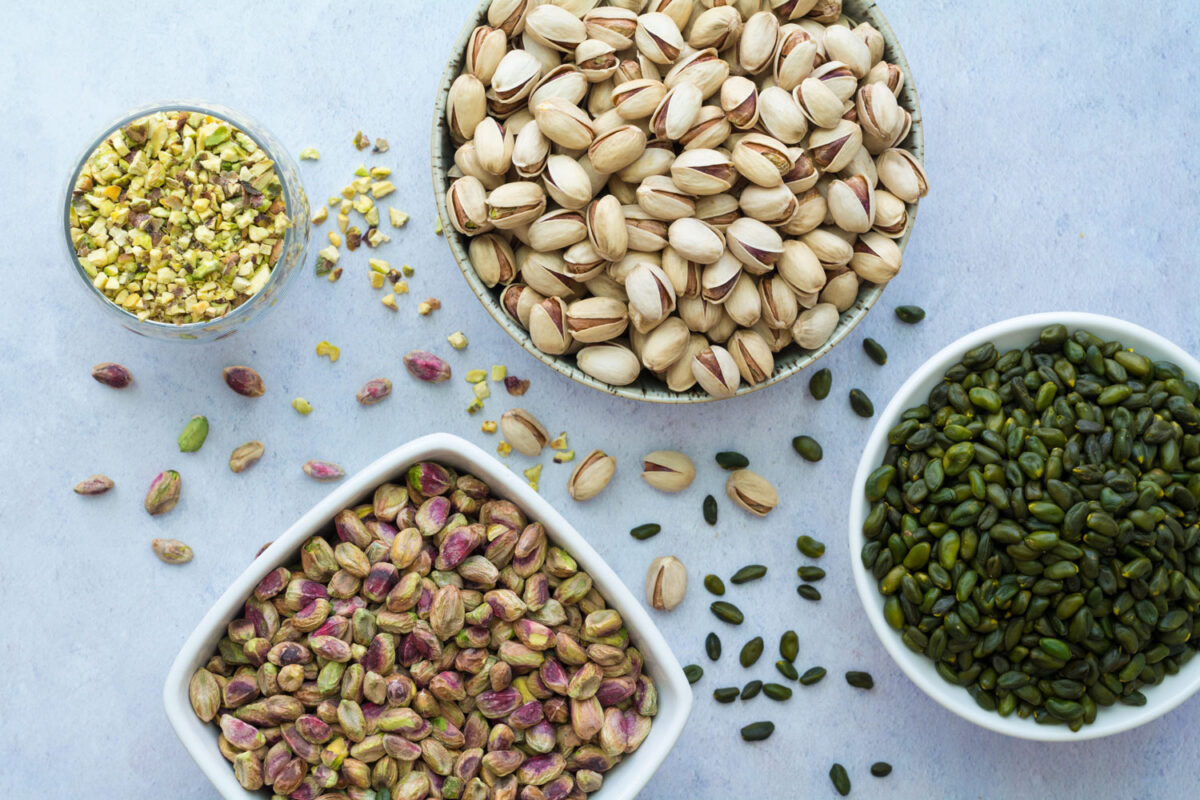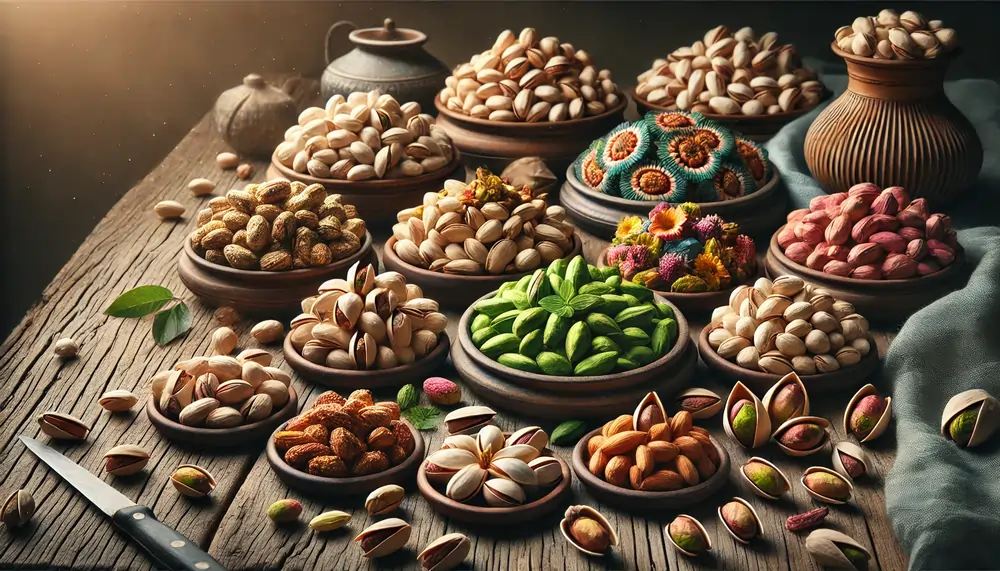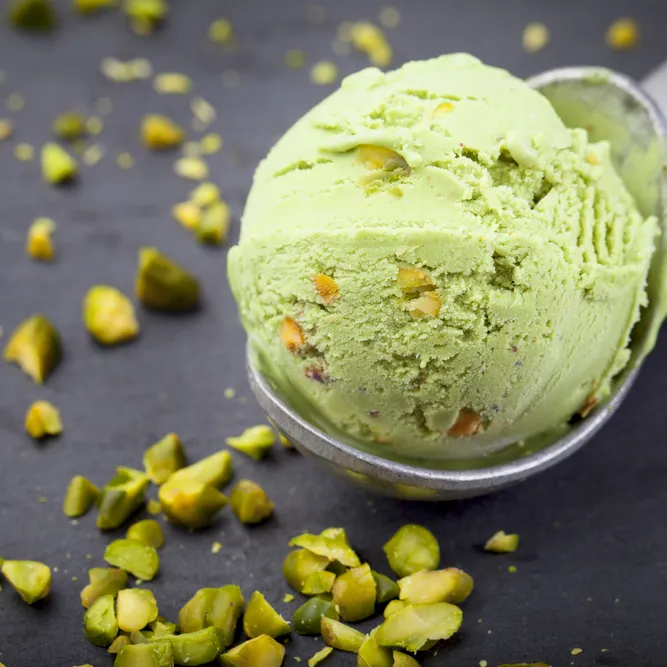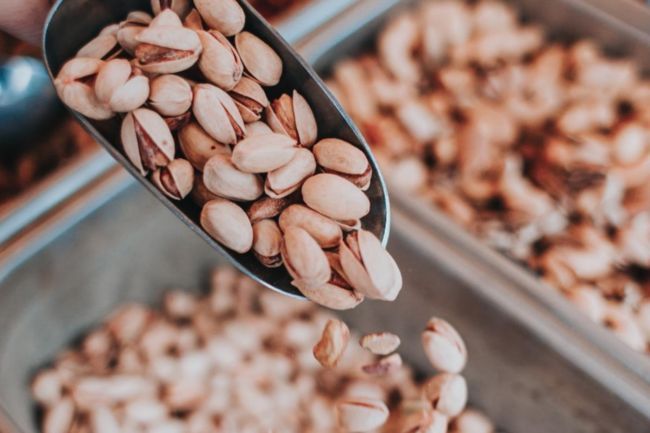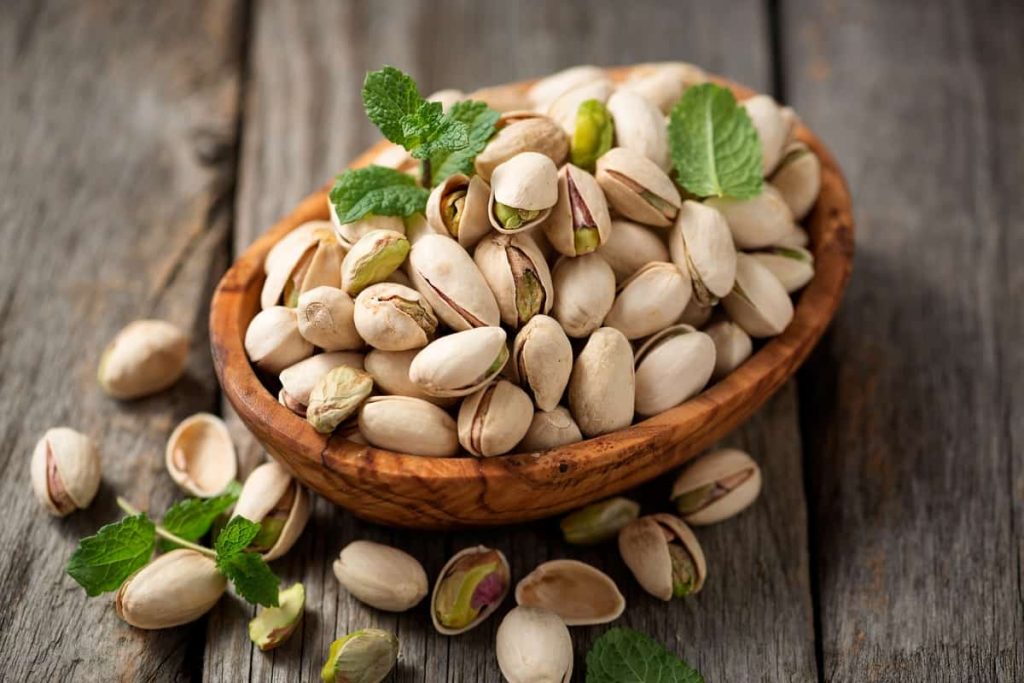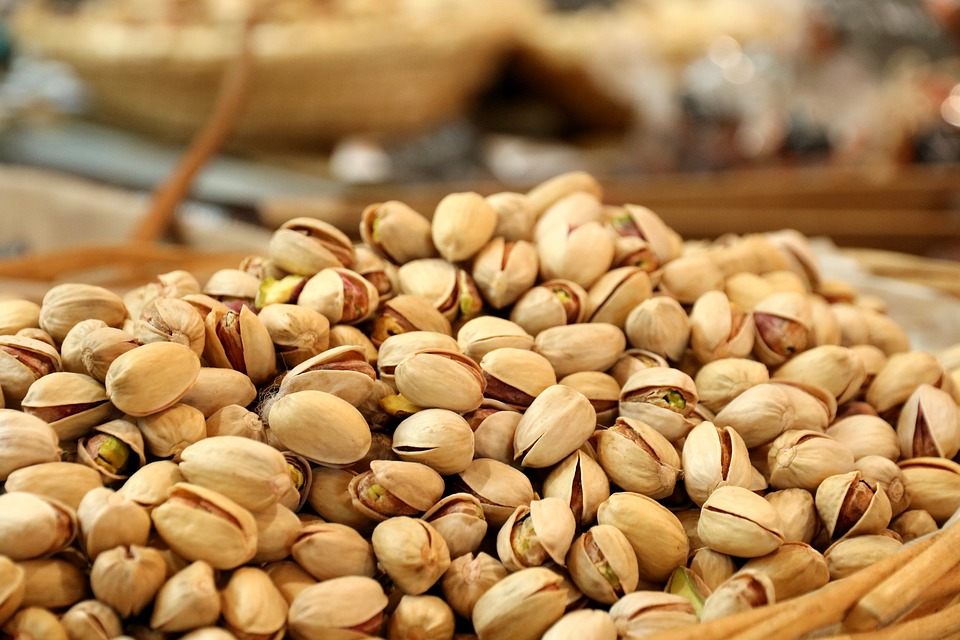Your body naturally produces the hormone melatonin to signal that it’s time to go to sleep (1Trusted Source, 2Trusted Source).
As sleep can significantly affect your health, it’s helpful to know that certain foods, including pistachios, contain melatonin (3Trusted Source, 4Trusted Source, 5Trusted Source, 6Trusted Source).
In fact, pistachios and other food-based sources of melatonin like grains and mushrooms may help promote sleep without causing grogginess (3Trusted Source, 4Trusted Source, 5Trusted Source, 6Trusted Source).
This article details the melatonin content of pistachios and how it might affect your body.
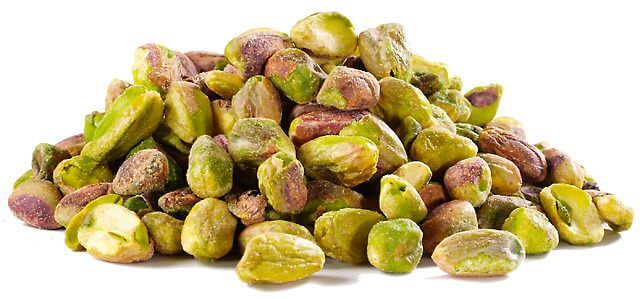
How does melatonin affect your body?
Your body typically makes melatonin in response to darkness. In most people, its production usually peaks around 2 a.m. (1Trusted Source, 2Trusted Source, 7Trusted Source, 8Trusted Source).
Melatonin-containing foods can increase the amount of this sleep-promoting hormone in your body (2Trusted Source, 7Trusted Source).
This means that the naturally occurring melatonin in pistachios may help your body understand that it’s time for bed (2Trusted Source, 7Trusted Source).
Just 1 ounce (28 grams) of pistachios can pack about 6 mg of melatonin, which is comparable to the amount found in the average melatonin supplement (2Trusted Source, 7Trusted Source).
It’s important to note that melatonin doesn’t cause grogginess. It simply signals your body to relax because it’s time to go to sleep (8Trusted Source).
Furthermore, melatonin can aid the body in other ways. For instance, it can help keep your eyes healthy, calm stomach ulcers and heartburn, and quell tinnitus symptoms (1Trusted Source, 2Trusted Source, 8Trusted Source).
Melatonin content of pistachios
More research on just how much exogenous melatonin — meaning melatonin that comes from foods or supplmeents — is needed to affect your body.
A 3.5-ounce (100-gram) serving of shelled pistachios contains 23 mg of melatonin. For reference, 1 cup holds roughly 4.5 ounces (128 grams) of shelled pistachios (2Trusted Source, 7Trusted Source, 9Trusted Source).
Meanwhile, a melatonin supplement will usually contain 0.2–10 mg per dose (8Trusted Source, 10Trusted Source, 11Trusted Source, 12Trusted Source).
Keep in mind that the Food and Drug Administration (FDA) doesn’t regulate supplements the same way it regulates precription medications, and an optimal dose has not yet been established (8Trusted Source, 10Trusted Source, 11Trusted Source, 12Trusted Source).
Given the reduced oversight, it isn’t easy to discern the exact contents and makeup of a given supplement like melatonin.
However, in many other countries, melatonin supplements are not sold over the counter and may require a prescription, so those will be regulated and monitored accordingly.
While most studies on melatonin supplements administer 1–10 mg at a time, there currently aren’t recommended dosage instructions (8Trusted Source, 10Trusted Source, 11Trusted Source, 12Trusted Source).
However, taking 0.2–5 mg 60 minutes before bedtime is generally considered safe for adults. More than 30 mg of supplemented melatonin could be potentially harmful (10Trusted Source, 12Trusted Source, 13Trusted Source).
More research is needed to determine whether the body absorbs melatonin from food sources differently than melatonin from supplement sources.
You should consult a healthcare professional before taking melatonin supplements, especially if you take blood thinners or medications for epilepsy.
Food sources of melatonin
Grains, mushrooms, and pistachios are among the highest food sources of melatonin (2Trusted Source).
Below are the melatonin contents of some common foods (2Trusted Source, 9Trusted Source):
- Pistachios: 230,000 nanograms of melatonin per gram
- Mushrooms: 4,300–6,400 nanograms per gram
- Oats: 91 nanograms per gram
- Cherries: 10–20 nanograms per gram
- Tomatoes: 1–67 nanograms per gram
- Cow’s milk: 0.014 nanograms per milliliter
It’s worth noting that although cow’s milk doesn’t contain a significant amount of melatonin, it does pack high amounts of tryptophan. Tryptophan is an amino acid that your body can convert to melatonin (7Trusted Source).
SUMMARYPistachios contain a significantly higher concentration of naturally occurring melatonin than many common foods.
The bottom line
Melatonin is a hormone that signals your body that it’s time to sleep.
While your body naturally produces melatonin, it can also be found in supplements and foods like pistachios.
However, it’s worth keeping in mind that melatonin works in response to darkness. Keeping your room dark and screens off a few hours before bedtime may also help you get better rest.
Further research on the connection between the naturally occurring melatonin in food and its bodily effects is needed. However, barring any nut allergies, it certainly can’t hurt to try.

